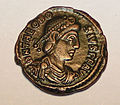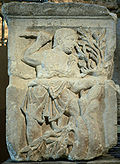Marcellus Empiricus
Marcellus Empiricus is a late Roman physician known for his work in the field of medicine. He is best known for his book De Medicamentis Empiricis, Physicis, et Rationabilibus, which is a significant source of information about the medical practices of his time.
Life
Little is known about the life of Marcellus Empiricus. He is believed to have lived in the late 4th and early 5th centuries AD, during the time of the Roman Empire. His exact birth and death dates are unknown.
Work
Marcellus Empiricus is best known for his book De Medicamentis Empiricis, Physicis, et Rationabilibus. This book is a significant source of information about the medical practices of his time. It contains descriptions of various medical treatments and medications, as well as advice on diet and lifestyle.
The book is divided into three parts. The first part deals with empirical medicine, the second part with physical medicine, and the third part with rational medicine. Each part contains a number of chapters, each dealing with a specific topic.
Legacy
The work of Marcellus Empiricus has had a significant impact on the field of medicine. His book De Medicamentis Empiricis, Physicis, et Rationabilibus is considered a valuable source of information about the medical practices of his time. It has been studied by many scholars and has contributed to our understanding of the history of medicine.
See also
References
External links
- Marcellus Empiricus on Wikipedia
Transform your life with W8MD's budget GLP-1 injections from $125.
W8MD offers a medical weight loss program to lose weight in Philadelphia. Our physician-supervised medical weight loss provides:
- Most insurances accepted or discounted self-pay rates. We will obtain insurance prior authorizations if needed.
- Generic GLP1 weight loss injections from $125 for the starting dose.
- Also offer prescription weight loss medications including Phentermine, Qsymia, Diethylpropion, Contrave etc.
NYC weight loss doctor appointments
Start your NYC weight loss journey today at our NYC medical weight loss and Philadelphia medical weight loss clinics.
- Call 718-946-5500 to lose weight in NYC or for medical weight loss in Philadelphia 215-676-2334.
- Tags:NYC medical weight loss, Philadelphia lose weight Zepbound NYC, Budget GLP1 weight loss injections, Wegovy Philadelphia, Wegovy NYC, Philadelphia medical weight loss, Brookly weight loss and Wegovy NYC
|
WikiMD's Wellness Encyclopedia |
| Let Food Be Thy Medicine Medicine Thy Food - Hippocrates |
Medical Disclaimer: WikiMD is not a substitute for professional medical advice. The information on WikiMD is provided as an information resource only, may be incorrect, outdated or misleading, and is not to be used or relied on for any diagnostic or treatment purposes. Please consult your health care provider before making any healthcare decisions or for guidance about a specific medical condition. WikiMD expressly disclaims responsibility, and shall have no liability, for any damages, loss, injury, or liability whatsoever suffered as a result of your reliance on the information contained in this site. By visiting this site you agree to the foregoing terms and conditions, which may from time to time be changed or supplemented by WikiMD. If you do not agree to the foregoing terms and conditions, you should not enter or use this site. See full disclaimer.
Credits:Most images are courtesy of Wikimedia commons, and templates, categories Wikipedia, licensed under CC BY SA or similar.
Contributors: Prab R. Tumpati, MD




